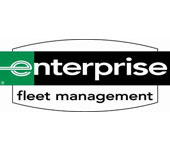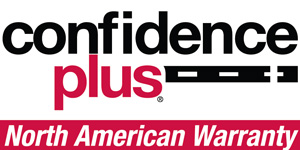Business Hours
- Monday - Friday
- BASHFORD AVE
7:30 AM - 4:30 PM
Phone: (502) 203-0454 - PRESTON HWY
7:00 AM - 4:00 PM
Phone: (502) 230-4279
AMERICAN BRAKE CENTERS INC.
(502) 203-0454 for Bashford Ave or (502) 230-4279 for the Preston Hwy location | 3435 Bashford Ave Ct Louisville, KY 40218
AUTONET TV
Archive for August 2022I NEED All Wheel Drive (Pros and Cons of AWD)Posted August 28, 2022 12:44 PMSo winter has arrived and you don't feel confident in how your 2-wheel drive vehicle does in the snow and ice. You envy all those people with all-wheel-drive (AWD) and 4-wheel-drive (4WD) cars, trucks and SUVs. You start thinking, "I need one of those. I'll be able to go anywhere without any worries." The truth is there might be another option for you that you might not have thought of. Sure, you've seen the ads that tout the advantages of AWD and 4WD, and some of the videos make it look like they can handle everything Mother Nature can throw their way. The truth, though, is that vehicles with drive wheels at all four corners can't stop any more quickly than those with 2-wheel-drive. Yes, AWD and 4WD vehicle have advantages when it comes to acceleration, but when it comes to stopping and handling, they generally don't. If you buy a new AWD or 4WD vehicle, you are going to spend thousands of dollars. Maintenance and upkeep costs are higher due to the vehicle's increased complexity and weight, and you're likely to take a hit in fuel economy. So, what's the option we mentioned above? It's simple. Winter tires. If you have a front-wheel-drive (FWD) vehicle with winter tires, you'll notice a tremendous difference in your winter traction and stopping than the all-season tires that are on most vehicles. One tire company, Michelin, wanted to find out which was better in the snow: an AWD car with all-season tires or a FWD car with winter tires. And they found while the AWD car could get going a little more easily, in most of the other comparisons, the FWD car with winter tires handled equally or better and stopped in a shorter distance. The optimal combination would be, of course, AWD or 4WD with winter tires. But one major consumer testing magazine found that only about 12 percent of their subscribers who drove AWD or 4WD vehicle in the snow for more than 6 days in the previous winter even used winter tires! So a set of winter tires may give you the handling and stopping you're looking for and for a lot less cash than a new AWD vehicle. Consult your service advisor for some recommendations. You may be pleasantly surprised at how you can handle winter roads without having to handle a new, big, fat monthly payment for a new vehicle. American Brake Centers Inc. Conventional or Synthetic? (Switching to Synthetic Oil)Posted August 14, 2022 1:35 AMIf you keep up on technology trends, then you may be intrigued about synthetic motor oil. It was introduced in the 1960s when Mobil came up with it. Mobil's oil was different from conventional motor oil because it was first broken down to its basic molecules. Then, Mobil removed additional impurities from crude oil and "tailored them to the demands of modern engines." Synthetic oil is becoming more popular now because of its advantages over conventional oil. It's more resistant to sludge forming in an engine. It is more efficient and protects engines better under temperature extremes. Because it allows drivers to go longer between oil changes, many feel it's more convenient. The downside is that synthetic oil is more expensive, but because it doesn't need changing as often, the cost can be pretty comparable in the long run. Those who drive high performance vehicles (think Audi, BMW, Mercedes) are already using synthetic oil if they're following their manufacturer's guidelines. Other manufacturers recommend a synthetic blend. So for those who are using conventional oil, you may want to consult your service advisor for some recommendations if you want to switch to synthetic. If you're the type who always waits until the last-minute or doesn't ever get in quite in time for the recommended oil change interval, the longer gap required between changes with synthetic oil may appeal to you. In some cases, you can go up to 15,000 miles/24,000 km between changes. If you drive in a very cold climate, synthetic oil can flow more easily at startup and may offer quicker engine protection. On the other hand, in hot climates, synthetic oil can resist heat breakdown better. Or you may be one of those drivers who have been getting along fine with conventional oil changes. Millions do. Just remember that changing your oil is considered the most important maintenance you can do on your vehicle, so make sure it's done at the right time and with the oil that best suits your driving needs. American Brake Centers Inc. Mercury Rising (Hot Weather Vehicle Concerns)Posted August 7, 2022 3:24 AMThe heat is on, and your vehicle takes a beating when it is. Several of your vehicle's systems are under extra stress in hot weather, so here are a few to make sure are getting the care and maintenance they need. It makes sense that the cooling system is one to make sure is in top shape. Vehicle breakdowns in summer are often due to a problem with one of the cooling system's components. Coolant levels have to be up to specs, the ratio of coolant to water must be correct and the hoses, pumps, belts and radiator must all be working properly in order to prevent vehicle overheating. Summer is also hard on your air conditioning system. You might find that no air is blowing out of the vents or maybe only hot air is coming out. Air conditioning equipment is best diagnosed and repaired by a trained and experienced technician. The problem could be in any number of components, including the condenser, compressor or blower motor. You may think the battery gets a break in the summer, but heat will shorten the life of your battery more quickly than cold. Your service facility can analyze the condition of your battery and tell you whether it's healthy or needs replacing. Tires take a beating in heat, too. Pavement can be scorching hot, and the sun's rays break down the rubber. Watch inflation pressure in hot weather, too, since air expands the hotter it gets. Your technician can check air pressure, tread depth, cupping and other uneven wear and diagnose the source of any problems. And don't forget brakes. One video online says brakes on a car that were driven hard on a track reached temperatures as high as 500°C/932°F. Heat can reduce stopping power. A technician should periodically inspect pads, rotors, drums, lines and other components to find a problem before you lose the ability to stop. Finally, engine oil is really put to the test when it gets hot. Your vehicle service facility will make sure you have enough oil and the proper kind to keep your engine's components properly lubricated. Help your vehicle beat the heat. American Brake Centers Inc. | ||
SearchArchiveJune 2019 (18)July 2019 (4) August 2019 (4) September 2019 (5) October 2019 (4) November 2019 (4) December 2019 (5) January 2020 (5) February 2020 (4) March 2020 (5) April 2020 (4) May 2020 (5) June 2020 (4) July 2020 (4) August 2020 (5) September 2020 (4) October 2020 (4) November 2020 (5) December 2020 (4) January 2021 (6) February 2021 (4) March 2021 (4) April 2021 (4) May 2021 (5) June 2021 (4) July 2021 (4) August 2021 (5) September 2021 (4) October 2021 (5) November 2021 (4) December 2021 (4) January 2022 (6) February 2022 (4) March 2022 (4) April 2022 (4) May 2022 (5) June 2022 (4) July 2022 (5) August 2022 (4) September 2022 (4) October 2022 (5) November 2022 (4) December 2022 (4) January 2023 (5) February 2023 (4) March 2023 (4) April 2023 (5) May 2023 (4) June 2023 (4) July 2023 (5) August 2023 (4) September 2023 (4) October 2023 (5) November 2023 (4) December 2023 (5) January 2024 (5) February 2024 (4) March 2024 (5) April 2024 (4) May 2024 (4) June 2024 (5) July 2024 (4) August 2024 (4) September 2024 (5) October 2024 (4) November 2024 (4) December 2024 (5) January 2025 (4) February 2025 (4) March 2025 (5) | CategoriesWhat Customers Should Know (41)Fuel Economy (6)Tires and Wheels (1)Timing Belt (3)Fluids (3)Maintenance (7)Service Intervals (1)Alignment (4)Check Engine Light (4)Steering (4)Exhaust (5)Shocks & Struts (1)Air Conditioning (4)Brakes (10)Older Vehicles (1)Cooling System (3)Battery (3)Water Pump (1)Oil Change (5)Transmission (2)Tires (2)Customer Detective Work (1)Fuel Saving Tip: Slow Down (1)Fuel System (1)Auto Safety (3)Keys to a long lasting vehicle (2)Windshield Wipers (2)Alternator (2)Automotive News (1)TPMS (1)Headlamps (2)Service Standards (2)Cabin Air Filter (1)Fuel Pump (1)Winter Prep (2)Safety (2)Shocks and Struts (1)Drive Train (2)Inspection (3)Engine Air Filter (1)Dashboard (1)Spark Plugs (1) | |











